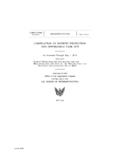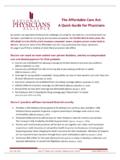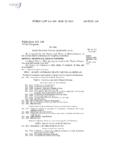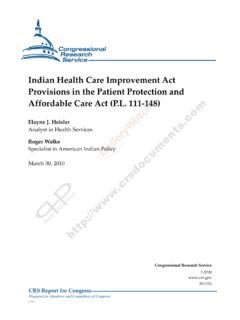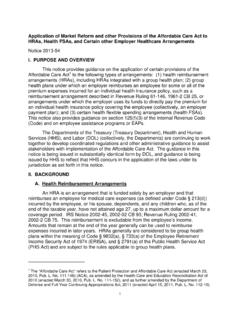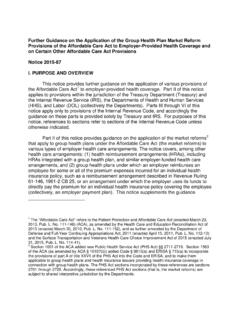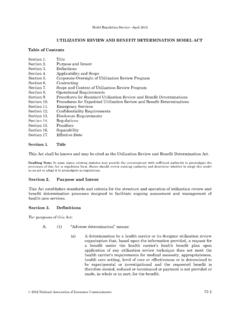Transcription of Inservice Requirements and Suggestions - Care …
1 Nursing Facility Training Requirements care Providers of Minnesota - 2012. Nursing Home providers frequently struggle with determining the minimum Requirements for ongoing staff training Requirements . Lack of documented staff training is often referenced in nursing home deficiencies issued by the Minnesota Department of Health. Obviously, each employee, depending upon his/her registration, certification, or license must keep such registration, certification, or license current (F499). Facilities should retain proof of all current staff registrations, certifications, and licenses.
2 On a very broad scale, Minnesota Rule requires: 1. All personnel must be instructed in the Requirements of the law and the rules pertaining to their respective duties 2. All personnel must be informed of the policies of the nursing home 3. Inservice education must be sufficient to ensure the continuing competence of employees. In addition, facilities must have a system to deliver appropriate staff training and keep documentation of such training. Below is a list of Inservice /training Requirements and recommendations that facilities should comply with.
3 While this list does not include every federal, state, professional, or local training requirement, it is a good place to begin your annual training calendar (please contact Doug Beardsley at if you believe anything on this list is erroneous or if you have additional mandated training Requirements that should be added): 1. 12 hours of training for Nursing Assistants every 12 months (required annually- F497). 2. Nursing Assistant training topics should include areas of weakness identified in performance reviews (which must be completed every 12 months) and may address the special needs to residents (required annually F497).
4 3. Nursing Assistants who care for residents with cognitive impairments must have Inservice training in the care of cognitively impaired persons (required annually F497). In addition, Section 6121 of the Patient Protection and Affordable care Act (PPACA) of 2010 amended Sections 1819(f)(2)(A)(i)(I)). and 1919(f)(2)(A)(i)(I) of the Social Security Act. The amendment requires that nurse aide training include initial and annual dementia management and patient abuse prevention training for all nurse aides.
5 This means that you must 2012 care Providers of Minnesota incorporate material on dementia management and abuse prevention into your annual in-service plans. 4. Staff education on the facility's policies and procedures regarding advance directives and the Patient Self Determination Act (required - no frequency specified F156). 5. Community education regarding advance directives and the facilities policies and procedures regarding advance directives, including any facility limitations (required no frequency specified - F156).
6 6. Abuse prevention training for all employees. Suggested topics include all seven required components of a facility abuse prevention plan: screening, training, prevention, identification, investigation, protection, and reporting/response (required upon hire and then on-going sessions - F226 and Appendix P). 7. Training regarding the facility's emergency procedures (required upon hire and then periodically thereafter F518). 8. Training regarding the facility's infection control program. Training should include standard precautions (universal precautions/body substance isolation (required upon hire and then periodically thereafter F441).)
7 9. Training regarding the implementation of action plans identified by the facility's Quality Assessment and Assurance Committee (required no frequency specified but must be ongoing F520). 10. For facilities serving clients with Alzheimer's disease or related disorders, staff training must include: (1) An explanation of Alzheimer's disease and related disorders, (2) Assistance with activities of daily living, (3) problem-solving with challenging behaviors, (4) communication skills. A description of the training program, including the categories of employees trained, the frequency of training, and the basic topics covered must be made available to consumers (required for identified facilities no frequency specified Minnesota Statute ).
8 11. Training regarding the facility's organized safety program and safety plan (required upon hire and through Inservice programs - Minnesota Rule ). 12. Training regarding the facility's AWAIR (A Workplace Accident and Injury Reduction program) for all affected employees (required annually Minnesota Statute ). 13. Training regarding the facility's comprehensive hazard training program, including the Employee Right to Know/Workplace Safety program, Universal 2012 care Providers of Minnesota Precautions, and Material Safety Data Sheets (MSDS), and lockout/tagout (required when an employee receives his/her initial work assignment and whenever a new physical or health hazard is introduced into the employee's work area (suggested annually) OSHA Regulation ).
9 14. Training regarding the facility's Bloodborne Pathogens procedures, at the time of initial assignment to tasks where occupational exposure may take place and then at least annually thereafter (OSHA ). 15. Training regarding the facility's infection control program, including policies and procedures for infection prevention and control (required, no frequency specified MN Rule ). 16. Training regarding the facility's program in rehabilitation; including the promotion of ambulation, aid in activities of daily living, assistance in activities, self-help, maintenance of range of motion, proper chair and bed positioning, and the prevention or reduction of incontinence for all nursing personnel (required, no frequency specified MN Rule 4658-0100).
10 17. Staff training must address the special needs of residents as identified by the nursing staff (required, no frequency specified MN Rule 4658-0100). 18. For HIPAA covered entities, HIPAA training is required of employees who are likely to obtain access to protected health information; the training must include the facility's policies and procedures relating to protected health information. (required upon hire and every three years thereafter). 19. Annually notify each employee of that individual's obligation to report suspicion of a crime against a resident to both the State Agency and local law enforcement within the required time period (2 hours or 24 hours).
